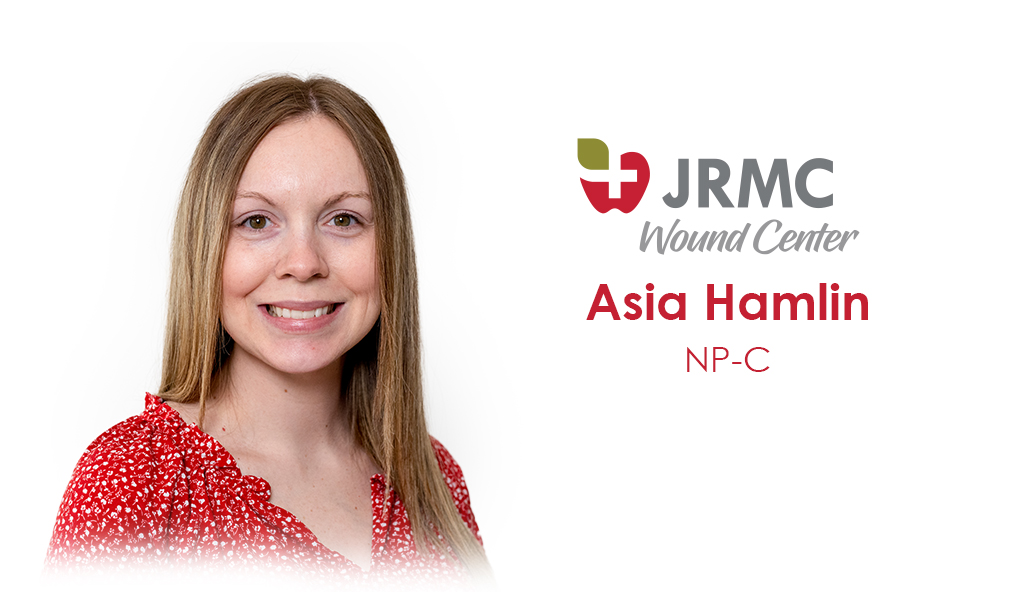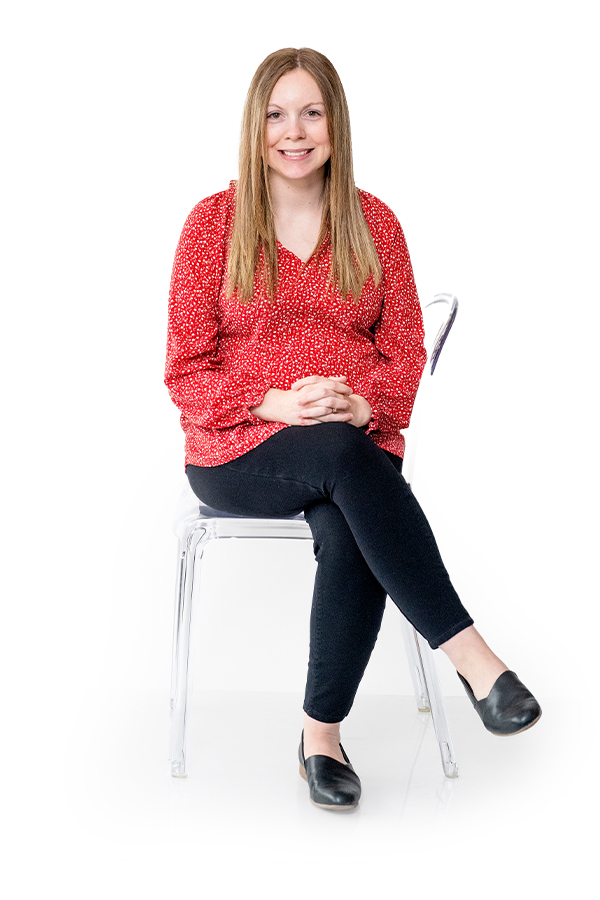
Your progress inspires me.
Asia grew up in Minnesota and now lives in LaMoure with her husband and kids. She recharges outdoors — camping, fishing or working on home projects — and never says no to sour candy or pizza.
-
ASIA HAMLIN, NP-C Wound & Hyperbaric Specialist,
She knows wounds can affect more than just your body; they can impact how you feel about yourself. Asia brings steadiness, compassion and encouragement to every visit. She celebrates your wins, listens without judgment and helps you heal — physically and emotionally.
JOINED JRMC
2025
HOMETOWN
Thief River Falls, Minn.
BOARD CERTIFIED
AMERICAN ASSOCIATION OF NURSE PRACTITIONERS
NURSE PRACTITIONER PROGRAM
Maryville University
St. Louis, Mo.
NURSING
Aspen University
Aspen, Colo.
Q&A with Asia

JRMC Wound & Hyperbaric Center Services
- The JRMC Wound & Hyperbaric Center can help wounds heal faster. The center offers a valuable resource for patients with hard-to-treat wounds. Hyperbaric oxygen therapy (HBOT) helps fight infections and heal wounds.
- diabetic wounds
- pressure ulcers
- traumatic wounds
- infected wounds
- learn how JRMC’s wound and hyperbaric specialists can help wounds heal faster
What led you to pursue wound care as a specialty?
How can patients and caregivers help prevent wounds from becoming infected?
Education is key — a significant part of wound care is helping patients and caregivers know how to properly clean wounds. To avoid infection and improve healing, wounds should be kept moist, and people should avoid using treatment options that can cause more harm, such as hydrogen peroxide or triple antibiotic ointment. Also, wounds should be covered in the shower to prevent bacteria from entering.
When should someone seek specialized wound care instead of trying to treat a wound at home?
If a wound isn’t healing, is getting worse or if someone doesn’t feel confident in managing it, it’s time to see a provider.
Many people either don’t know how to care for a wound or have physical limitations that can hinder healing. Patients don’t need a referral to be seen at the JRMC Wound Center, so they can schedule a consultation for themselves if they are concerned about managing or healing a wound that they may have.
You can make an appointment in the Wound Center today, just call (701) 952-4878 or schedule online.
How do you support patients who may feel overwhelmed and discouraged by a long healing process?
I try to understand where patients are coming from, emotionally, and offer frequent encouragement. In the Wound Center, we collect weekly photos so that people can visually track progress — this helps break down some of the discouragement.
I think it’s also important to remember how factors like comorbidities, offloading and medication compliance affect healing. Motivation can decline when progress feels slow, so celebrating wins is extremely important!
Are there any advancements in wound care you are really excited about?
I think that the bacteria-detecting goggles that we have in the Wound Center are very cool. These are used in the debridement process, using blue light to see biofilm and bacteria that might be sticking around. Tools like this help guide treatment and improve outcomes.
Are there any misconceptions about wounds and wound care that you frequently encounter?
Definitely! Many people still believe wounds heal best when they can dry out and scab over. Keeping the wound moist and protected is what promotes healing. People also often use hydrogen peroxide on wounds to kill bacteria, but they don’t realize that they may also be harming healthy tissue and getting rid of the good bacteria that aids in healing.
A significant portion of wound patients are diabetic — what should people with diabetes know about foot and skin care to prevent wounds?
It is so important to keep blood sugars well-controlled and regularly perform foot checks on yourself!
Diabetics often lose feeling their feet, so they may not immediately notice a wound forming. Also, talk to your provider about any signs of neuropathy (a form of nerve damage) or circulation issues.
Are there any wound care products that you recommend to people for either wound prevention or healing?
Especially in patients with dry or fragile skin, I recommend thick hydration solutions like Aquaphor or Vaseline. These create a barrier on the skin to promote hydration and prevent skin breakdown, which can really impact wound development.
For people with diabetes, prioritizing properly fitted diabetic shoes can prevent skin breakdown and prevent pressure-related wounds.
What inspires you to walk into work every day?
One of the best parts of this job is the relationships that we build with patients and being able to see their healing journey. Watching someone ring the bell after a long recovery process is incredibly rewarding — it makes a huge impact on their physical and emotional well-being.
What is your philosophy of care and treatment in wound healing?
Wound care requires “whole-person care” — you can’t just address the wound; you must care for the person’s overall well-being. I think that walking someone through the process of healing requires listening, educating and treating the individual, not just the wound.


